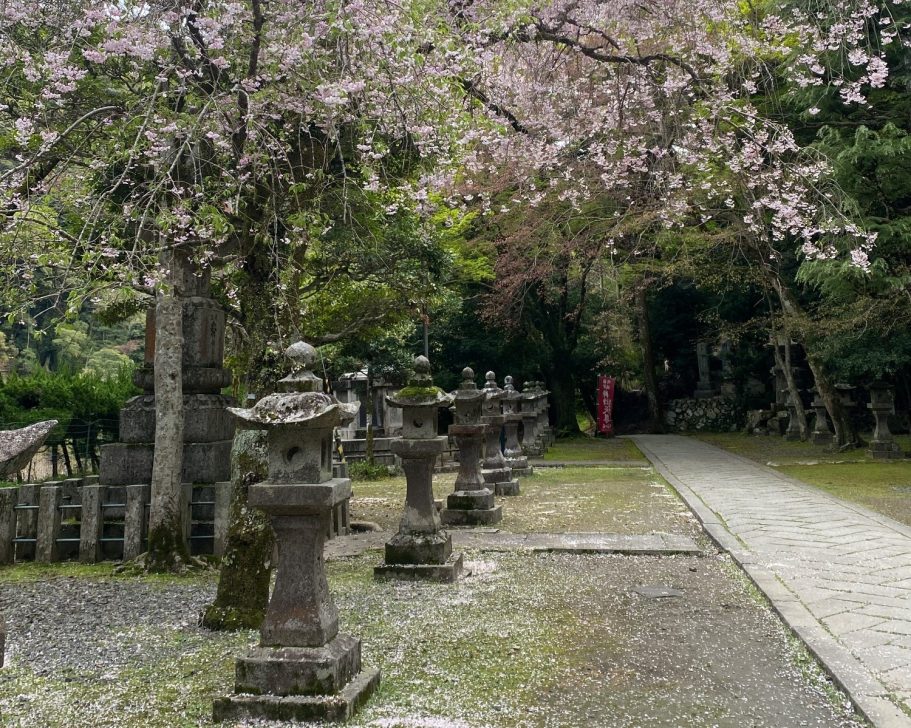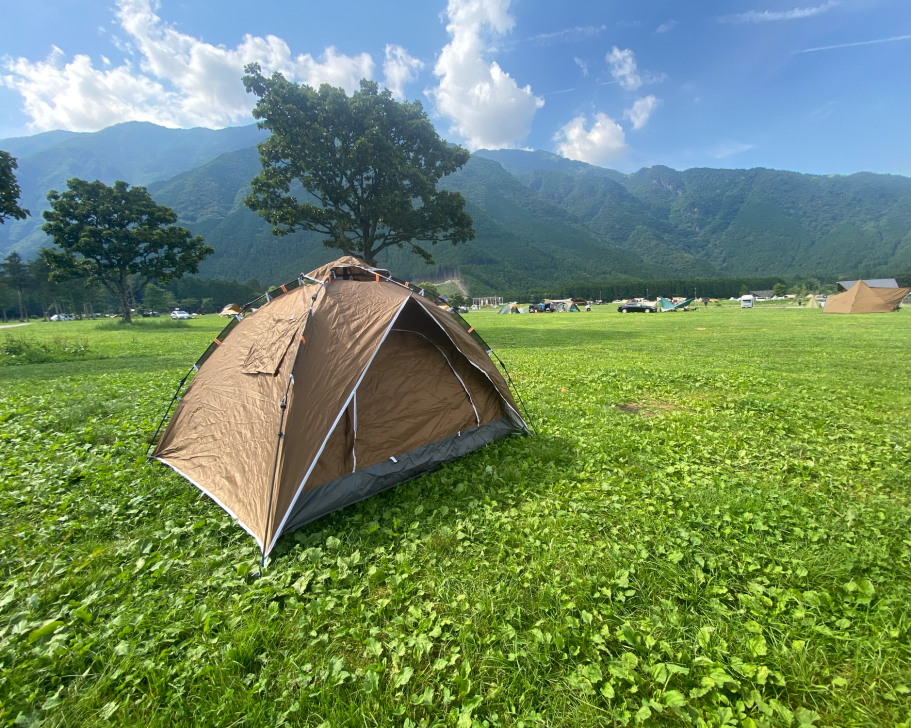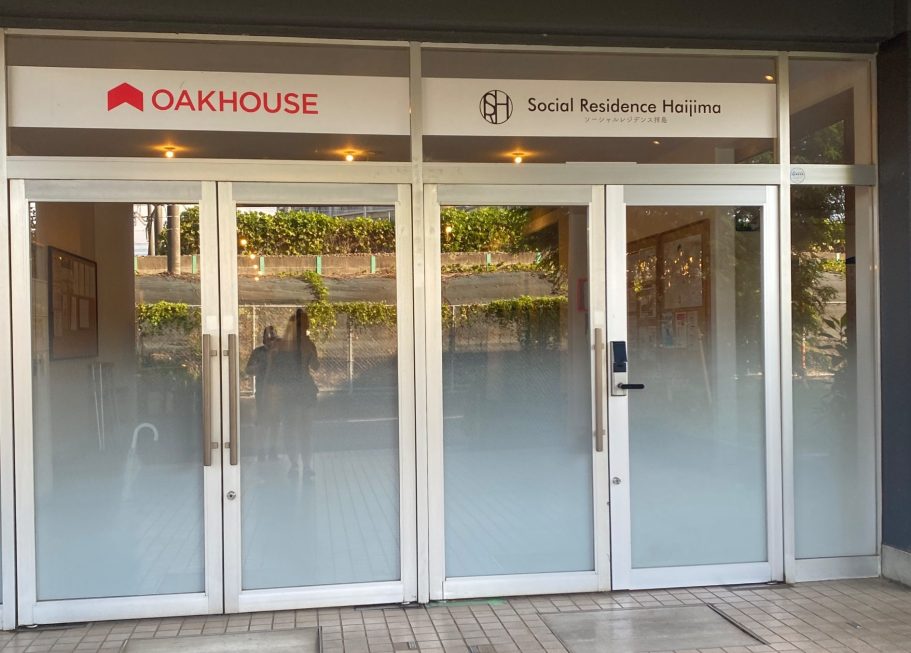Travel Japan On Less Than $1000 USD per Month in 2023
By Abbey Faye Williams / August 18 2023
Japan is a destination high on many traveller's bucket lists to visit, and having been travelling Japan for the last five months, I can safely say, this is rightly so.
There is a misconception however that Japan is not a cheap destination, and while this can be true depending on your travelling style, Japan actually can be visited if you are on a budget of $1000 USD or less per month.
Travelling Japan economically can make way for slower, more mindful travel, allowing you to ultimately stay longer and absorb the one-of-a-kind culture more deeply.

Budget-friendly Accommodation
There is a general rule of thumb that will serve you well in securing your preferred accommodation in Japan, but is also useful to remember when planning your Japan travels all round: Preparation is key!
Doing your research and making your reservations ahead of time is both valuable and often necessary to have the most budget-friendly and enjoyable experience of your time in the Land of the Rising Sun.
Japan experiences high numbers of domestic and international tourists, so when combined with websites that are sometimes not very user-friendly, You will save yourself from a lot of stress with just a little extra preparation ahead of time.
So with that said, starting with cheapest first, here is the list of low-cost accommodation options for your stay in Japan:
- Stay with friends and family
If you are fortunate enough to have friends and family who live in Japan who are willing to host you for free, then well done, you are winning. Treat them to a nice cold Kirin beer or tasty bowl of ramen.
- Camping (seasonal)
Though not for everybody, camping is a very cheap option not to be ignored for the frugal traveller in Japan. There are hundreds of free campsites across the country, as a well as those with affordable nightly rates that could help you shave off a significant chunk of your accommodation expenditure.
I stayed at a site with one of the most unobstructed, coveted views of Mount Fuji - click here for a full review (spoiler, it was incredible!). Head to your nearest Hard Off second hand shop, where you'll likely find all the equipment needed for your camping trip, as renting and buying new equipment can be very pricey.
Plus you can sell your equipment back to the Hard Off to re-coop some of the costs, providing it's still in good condition. Be sure to check the forecast of your desired stay, as Japan can experience both heavy snow fall and typhoons.

- Social Residences/Share Houses
Staying in a social residence or share house is a great way to both save money and mingle with Japanese natives and internationals alike. I was able to extend my travels in Japan to six months because of how much money staying in this social residence in Tokyo saved.
This option can be as cheap as $13 per night and often feature good transport links to city centres, as well as neat amenities like theatre rooms and massage chairs.
An excellent provider can be found at https://www.oakhouse.jp/ which features social residences and share houses in a number of major Japanese cities, and has a handy search engine to even find places with housemates who have similar hobbies and interests, or houses with women-only floors, perfect for female solo travellers.
There are also international exchange share houses if you'd like to learn some Japanese while you're here.
Most social residences/share houses have minimum one month contracts that need to be applied for ahead of time. Some share houses require separate payment for bills such as air conditioning use, so do factor that in.

- Love hotels
While not the cheapest option, in the lead for best value for money accommodation in Japan are love hotels. Starting at around $50 per night, love hotels come in many shapes and sizes, from wacky themes to stylishly sophisticated.
What makes love hotels great are the sheer amount of amenities you will often find with your room. This can range from free breakfast, in-room karaoke, jacuzzi bathtubs, a western style bed, Japanese electric toilets and *eh, hem*, adult entertainment.
Love hotels are generally cheaper than your average hotel and can be found on popular sites such as Booking.com, listed as adult-only hotels. Of course they can also be booked by the hour, if you're in the mood for a more spontaneous, wallet-friendly experience.

- Dishonourable mention: Capsule Hotels
It's worth mentioning that while capsule hotels were once an affordable option for Japanese business people and foreigners alike, this is sadly no longer the case.
The rise in popularity of capsule hotels has meant that finding one at a reasonable price is now really difficult, and unfortunately the value for money often just isn't there. Still, it maybe worth renting one by the hour for a more cost-efficient, unique experience.
Transport Costs
When travelling Japan on a budget, it's important to be realistic about how much you are going to be traversing the country. Of course the cheapest option would be to stay in one place and take your time to truly soak in all the experiences it has to offer.
But, if you are thinking of exploring multiple cities or venturing out to the stunning countryside, here's some information to help with your decision-making;
- Trains
Trains are the main and generally most cost-efficient way of travelling in Japan. The JR Rail Pass is a well-known option for foreigners, however with the upcoming price increase in October 2023, you will need to work out whether this is still worth investing in for your trip. For example the 14 day Ordinary Pass will see a 69% price increase to ¥80,000 or $548.99 USD per person.
The JR Pass could still be worth purchasing if you intend on visiting many different areas of Japan within the 7, 14 or 21 day period, or if you are covering large areas of the country. Be prepared to check that your chosen station sells JR passes as not all do, and expect to queue on the day of purchase.
Travelling via train within cities is however quite affordable, with an hour commute to Shinjuku costing about $7.60 for a return ticket per person. Keep an eye out for the train you plan to get, as some are pricier than others, with Limited Express reserved seating trains requiring an additional fee.

- Air Plane Travel
As Japan is an island nation, the likelihood is you will be arriving by plane. Flights that arrive into Fukuoka tend to be cheaper than direct into Tokyo, so if you are planning to see more of Kyushu region, that may be a good starting point.
If you are coming from South East Asia for example, a direct flight to Fukuoka from Bangkok can be as affordable as $130 one way per person.
Domestic flights, while far from ideal in terms of carbon footprint, can be reasonably priced. There is something however, much more enthralling about hopping on the Shinkansen and being whisked away at 200mph in comfort to your new destination.
- Dishonourable Mention: Car rental/taxis
Renting a hire car can be a tempting option to explore the farthest corners of the country, however this is undoubtedly the most expensive way of getting around in Japan, not to mention poor in terms of sustainability.
The same applies for taxi services, while not the most expensive when compared with other major cities, it is still a pricey choice which can add up quickly.

Leisure and Activities
Although a relatively small country, Japan has an enormous diversity of activities for every traveller to enjoy. It is entirely possible to find affordable things to do while visiting, but the main trick to keeping the cost from adding up is to do your research and be selective.
The reality is that you are probably not going to see and do every single thing there is to do in Japan! Knowing ahead of time what your absolute must-do's are can help give you the most fulfilling trip and save you money.
Some free and low-cost activities include:
- Hiking - there are trails easily accessible from Tokyo
- Visiting shrines and temples (though some such as Kiyomizu Temple in Kyoto have small entry fees)
- Exploring on foot
- Visiting a local green space such as Nara Park where many deer roam free
- Window shopping - Harajuku, Tokyo has a range of styles for you to browse
- Seasonal festivals such as Koenji Awa Odori Festival featuring thousands of street dancers, food stalls and drinking
Shopping
- Minimalism - adopting a minimalistic, intentional attitude can help both your bank account and your mind as you are accumulating less clutter to deal with when you are back home. Additionally, what you do purchase will hold more meaning and sentiment while reminding you of those precious memories. Click here to read more about how mindful travel can enhance your travel experiences.
- Tax free shops - there are several tax free shops dotted about the cities in Japan for you to take advantage of, including Bic Camera (electronics and housewares) and Don Quijote, which sells everything from cosmetics to noodle multipacks. Just be sure to have your passport at the ready to show you are a tourist on a short-term visa at the check out to benefit from the discounts.
- Low cost and re-usable souvenirs include chop sticks, capsule toys, paper fans, green tea, traditional sweets known as wagashi. Also, check out your local Hard Off for hardly-used, pristine condition vintage and second hand goods at discounted rates.

Food and Drink
One of the predominant draws for many people travelling to Japan is most understandably, THE FOOD. With Tokyo remaining one of the world-leading cities for culinary delights, it can be tough to resist the temptation of blowing the budget on food and drink.
In order to strike a balance, here are some practical tips for keeping your spending in check:
- Research and make a list of your 100% must-do restaurants and bars to visit
- Be mindful of how much you are spending on Uber Eats
- Cook your own meals if you can; opting to stay in a share house or Air BnB can be conducive to this
- Limit how much you eat out relative to how long you are visiting, for example if you're here for 1 month, once or twice a week may be reasonable
- Pack your own snacks instead of relying on combini stores as these small spends definitely add up and contribute toward single use plastic waste.
- Opt to drink store-bought alcohol at your accommodation or in a park (this is perfectly legal in Japan)
- Look for bars with small or no cover charges/compulsory appetiser - most bars and izakayas in Japan have a cover charge of $3.50-$6.50 USD per person or will give you a small appetiser know as otoshi. Sometimes the charge is displayed on a board outside of the bar, but not always. It is customary to pay this whether you want to or not, so it's something to be aware of especially if you only intend on having one or two drinks, or if you plan on bar hopping.
- Make use of all-you-care-to-drink bars which can be found in many cities

Extra Expenses
- Internet data - public wifi in Japan may not be as reliable as that which you are used to, but can still be found for free at many cafes and hotels. Alternatively, you can pick up a pre paid tourist SIM card from any Yodabashi or camera store and cost around $38 USD for a 30 day 50gb sim. You can also opt for 7 and 14 day sims or smaller gigabytes to save some cash.
Last Few Tips
As you have read, there are so many ways to save money while travelling in Japan, and it is entirely possible to have a incredible, life-changing experience here on less than $1000 USD per month. The main things to remember are to set your intentions by choosing low-cost accommodation and transport, and plan ahead when choosing your leisure activities, shopping and when dining and drinking out.
Japan does not have to be somewhere that you put off visiting for "when you can afford to". There is so much richness of culture and variety of places to explore, that this can certainly be your next destination, even for the most frugal of traveller.

Hello, I'm Abbey Faye. I'm a full time backpacker, mental health nurse and mindfulness advocate, currently slow travelling my way across Asia.
This blog is where I combine my passion for mindful travel and wellbeing, bringing you the best tips and guides to give you the most meaningful, memorable travelling experience.
Featured Posts
What is Mindful Travel?


